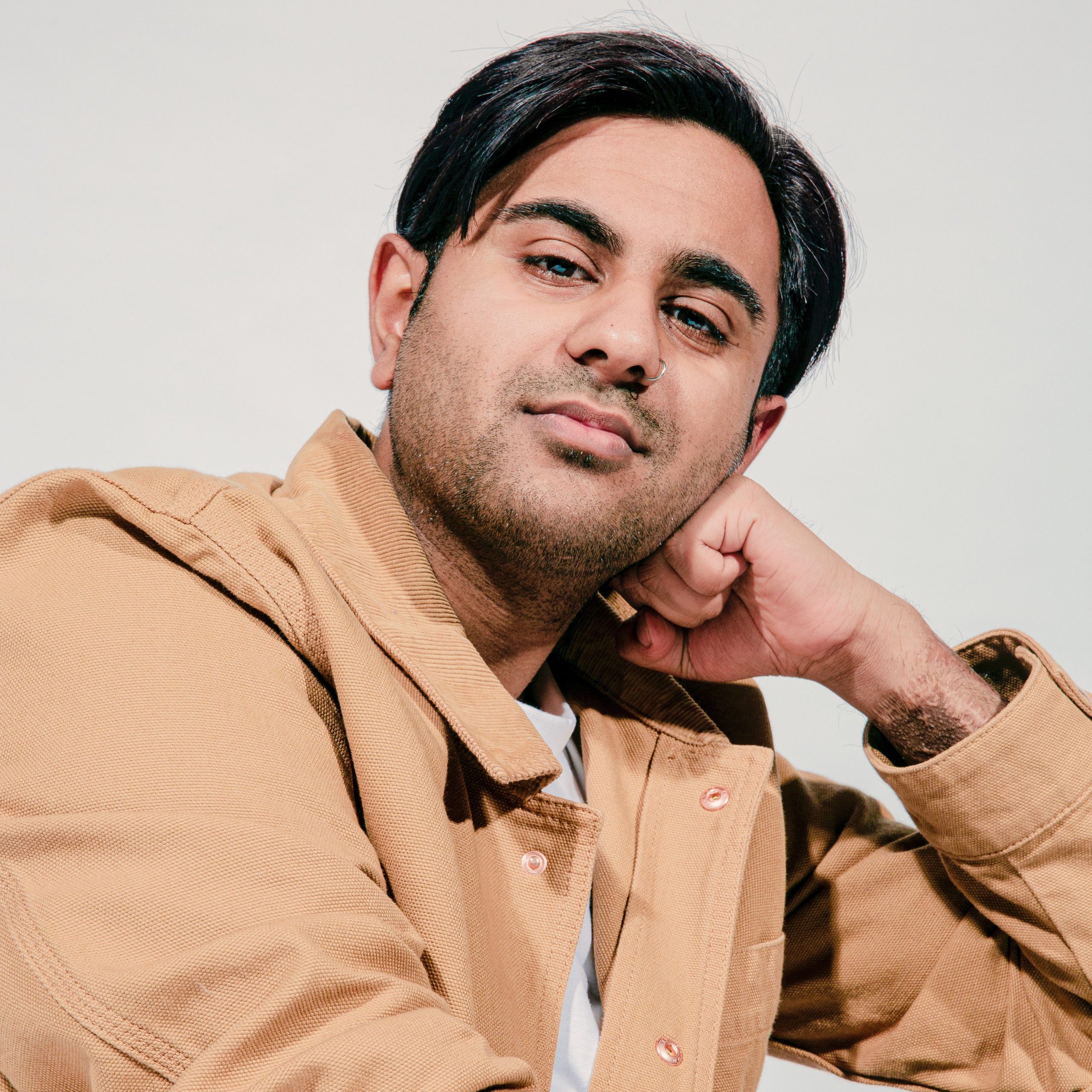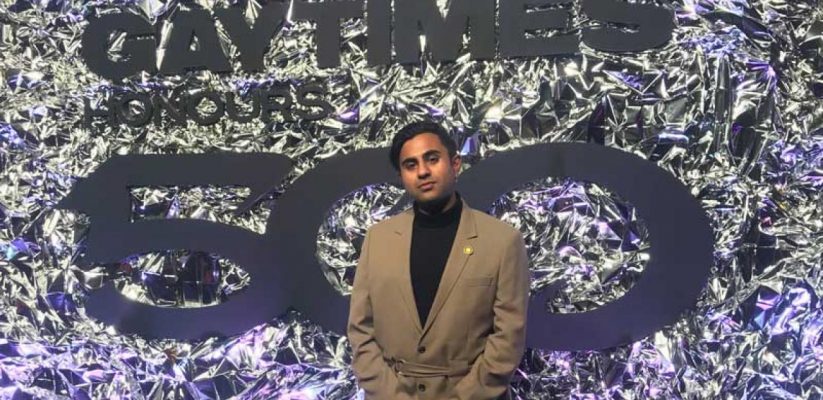In the run up to London Pride, we’re sharing the stories and celebrating achievements of our queer alumni. Here, Law graduate and intersex campaigner Anick Soni (He/Him) shares how his experiences at Westminster shaped who he is today.
Anick was not out when he went to his first Pride.
He became curious about it after seeing a poster in his Marylebone campus hall of residence.
“I wasn’t thinking about my sexuality at that point. It was more that I was wondering if there were other people like me, who are intersex,” he says.
University of Westminster graduate Anick Soni is now an intersex human rights activist, TEDx speaker and Fellow of the Royal Society of Arts. He runs a charity and has appeared in programmes, documentaries and radio programmes raising awareness about and advocating for intersex people.
Intersex, also known as ‘variations of sex characteristics’ or ‘differences of sex development’ refers to chromosomal, hormonal, reproductive and sex characteristics that do not fit neatly with societal definitions of typical female or male bodies.
But when he was in first year, Anick says didn’t even know the word intersex. Going to Pride was the first step towards something totally different.
Opening the door
Westminster was hosting National Student Pride and was asking for volunteers.
“I didn’t know what I was getting into,” Anick says, “and if I hadn’t seen that poster, I probably would never have gotten involved.”
He describes his volunteering experience as something that “opened the door” to starting to find his community.
He met lots of people from different universities, all with different stories and experiences. Meeting others similar – and different – to you can be powerful. It prompted Anick to “do a lot of soul searching to realise what it is that I want.”
His journey towards self-discovery had begun.
A degree of flexibility
Around this time, Anick decided to go on a study year abroad, which turned out to be life changing.
“In Australia, a doctor said to me: ‘How long have you known you’re intersex?’ And I said: ‘How long have I known I’m what?’
“We just don’t use that term in the same way that they do there. I never thought of myself as being between sexes, I just thought there was something different about me.”
The word intersex was an outdated medical term in the UK, that is being reclaimed by its community.
Learning this word first captured Anick’s attention – and then his academic interests.
“I thought, what am I doing in my current studies that will make space for my queerness and for being intersex?
Studying at Westminster meant he was able to choose modules and do research on what he was interested in.
“Once I found out I was intersex, I was able to incorporate it. It really made such a big difference working with open minded lecturers who were also on that learning journey with me – because they hadn’t heard the word intersex either.
“I think if I was anywhere else, I’m not sure what would have happened. Whether I would have felt comfortable saying to my tutors or anyone else that I want to do an essay or I want to do some research on queer topics. Or I want to focus my law degree on human rights violations for intersex people. I didn’t ever think that would be an opportunity. And then it just kind of created itself through all of the different networks that exist at Westminster.
“I was learning about myself but also about the history and potential for a future. That was all because there were so many ways I could incorporate it into my degree.”
Your connection with Westminster doesn’t stop at graduation. Anick says: “When you stay in contact with the university it gives you the opportunity to carry on that learning and keep those connections.”

Intersex campaigning
During the pandemic Anick set up a charity called Interconnected UK with two others: Dr Lih-Mei Liao, a clinical and health psychologist who has been working with intersex people since the 90s, and Magda Rakita, an intersex woman and campaigner.
“We realised that we need healing as a community. So much of the work done is focused externally – it’s to do with getting people to understand us. So what we wanted to do was create a space where we could understand ourselves.”
“We’re having conversations with those of us who have grown up with this – how do we feel? What are we doing? Again that wouldn’t have happened if I hadn’t been able to study intersex as well as be intersex. And that comes down to Westminster.”
Anick says intersex campaigning has become broader in recent years.
“We’re having conversations around bodies that we weren’t having before. These days I make a distinction between saying intersex and variations of sex development. There are so many things that could be a variation of sex development but it’s up to the individual and how it impacts them as to whether they want to take on this more political identity of saying they are intersex.
“Intersex has a lot more inclusion in spaces, particularly queer spaces. But we don’t want people to feel that they have to be a queer activist to be part of this, intersex has nothing to do with sexuality per se, in terms of orientation.
“And we still haven’t made an impact in education or the way that we actually talk about our bodies. We haven’t seen enough in the mainstream.”
Anick doesn’t want people to go through what he did – only finding people with variations when he was at university.
Pride at Westminster: 20-year anniversary
Anick is looking forward to the 20-year celebration of student pride coming back to Westminster in February as he now works for National Student Pride.
“It’s gone full circle,” he says, “and the student movement is so important for the queer community in general. We are slowly getting out of the people who grew up under Section 28 and people who were told not to learn about their sexuality.
“I’m really looking forward to meeting up with people doing research, or just starting out at university and not knowing who they are right now and one day figuring that out.”
Being proud
University is a transformative time, making it hard to know what your career will hold. For Anick, the reason for going was to “open as many doors as I could and not feel restricted by any paths.”
“I think my younger self at University would probably feel quite vindicated that I was doing the right thing by going with the flow and carving out the right space that I needed for myself.
“I consider Westminster the home and birthplace of my activism. I feel like I would be proud of myself.”
This Pride Month, we’ve been asking alumni in the Q+ community how Westminster supported them in becoming who they are today. Keep a look out for more stories this week.
- Peter’s Blog to Alumni - 27 January2026
- Could you mentor a Computer Science student this February and March? - 7 January2026
- India Alumni Survey Results - 27 October2025
